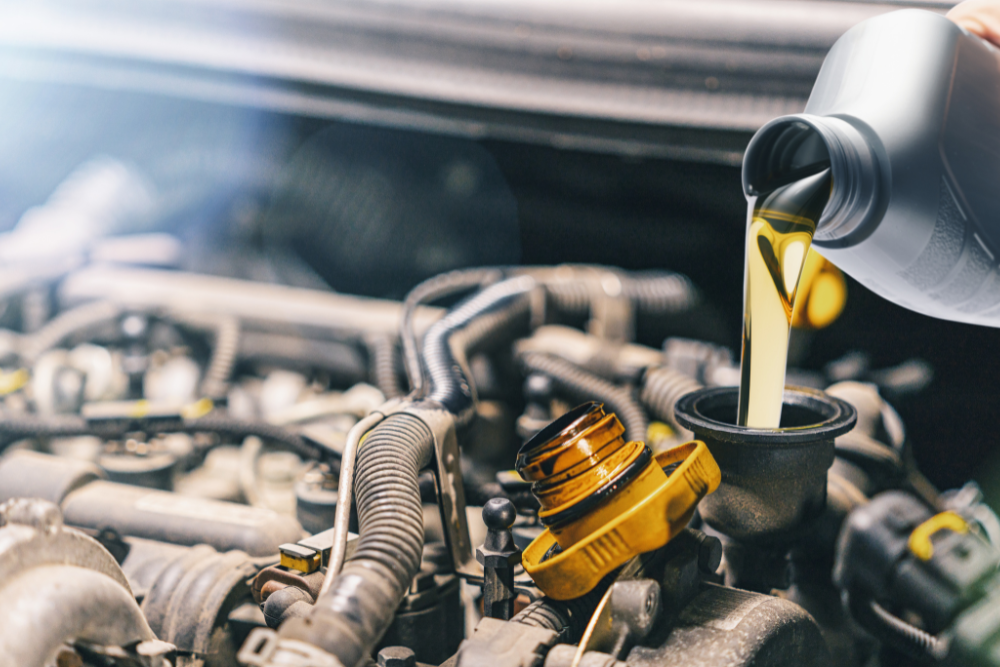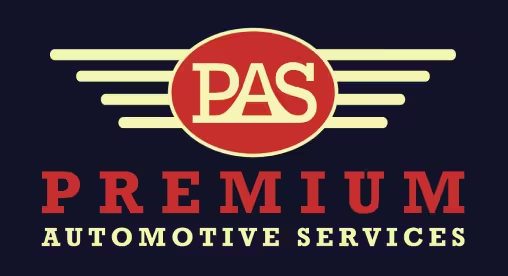You notice a light on your dashboard, maybe it’s just time for an oil change, or maybe your check engine light is flashing. But what if it’s not that simple? Many drivers in Edinburg face this exact moment, unsure whether their vehicle needs basic maintenance or is signaling a deeper engine issue. Ignoring the wrong one could mean unnecessary repairs, or worse, unexpected breakdowns.
At Premium Automotive in Edinburg, TX, we help you make sense of those dashboard alerts with clear guidance and expert service. In this guide, we’ll show you how to tell the difference between an overdue oil change and early signs of engine trouble, so you can respond the right way and keep your vehicle running at its best.

Why Oil Changes and Engine Performance Are Closely Connected
It might seem like a routine oil change and major engine issues are unrelated, but they are more connected than you think.
Motor oil isn’t just for lubrication. It cools, cleans, and protects your engine’s moving parts. When that oil becomes dirty or breaks down, either from age, neglect, or harsh driving conditions, it can’t do its job effectively. And that’s when small issues begin to grow.
In regions like Edinburg, where summer heat and stop-and-go traffic are common, oil degrades more quickly. If left unchanged, this can lead to:
- Low oil pressure
- Sludge buildup
- Poor engine performance
- Increased emissions
- Engine overheating
When you delay an oil change, your engine may start compensating in ways that eventually trigger a check engine light, a sign that the damage is no longer just preventive.
Flashing Check Engine Light vs. Oil Light: What’s the Difference?
It’s important to distinguish between warning lights. The oil light usually indicates low oil pressure or level. But if your check engine light is flashing, it’s a different story, and likely more urgent.
Here’s what you need to know:
- A solid check engine light often relates to a sensor, emissions, or a minor issue.
- A flashing check engine light is a red flag that something is actively damaging your engine.
Flashing often indicates an engine misfire, which means unburned fuel may be entering your exhaust system. That can lead to damage to the catalytic converter, one of the most expensive components to replace.
If your check engine light is flashing, it’s not something to monitor later. It’s something to stop and investigate now.
The Overlap: When Oil Problems Cause Engine Lights
Yes, engine trouble and oil changes can be distinct, but they often intersect. Below are common examples where one affects the other:
1. Low Oil Pressure
If oil isn’t circulating properly, your engine’s internal components begin to wear down, and sensors may trigger a check engine alert.
2. Oil Contamination
Dirty oil or sludge buildup from overdue changes can block small passages inside your engine, triggering fault codes.
3. Oil Sensor Failure
Modern vehicles use sensors to monitor pressure and temperature. If oil isn’t changed regularly, these sensors may become faulty or read incorrectly.
4. Overheating Components
Without enough oil to cool them, internal parts heat up, causing abnormal engine behavior, sometimes leading to misfires or pre-ignition.
While not every check engine light is caused by oil neglect, there’s a strong connection. That’s why keeping up with routine oil changes in Edinburg is an easy way to prevent bigger problems.
Spot the Signs: Oil Service or Something More?
If you’re unsure what your vehicle is telling you, this quick comparison can help clarify whether you’re dealing with a routine oil change or potential engine trouble:
Signs You Just Need an Oil Change | Signs You May Have Engine Trouble |
Oil change indicator or reminder light is on | Flashing check engine light |
You’ve reached the mileage interval for your oil change | Rough idling, stalling, or loss of power |
You’ve reached the time interval for an oil change | Loud knocking, ticking, or tapping from the engine |
Oil contamination (e.g., from fuel or debris—not system damage) | Smoke from the exhaust |
Oil is dark or slightly gritty but no other symptoms present | Burning oil or coolant smell inside the car |
No other warning lights are on | Unusual vibrations while accelerating |
Oil smell inside the cabin (often indicates a leak) | |
Engine noise from severely degraded or insufficient oil |
Both can be true, as your oil may be overdue, and you may have a developing engine issue. When in doubt, always prioritize diagnostics. Book an appointment online to get started.
A Look Inside: How Edinburg’s Climate Affects Your Oil
Living in Edinburgh means dealing with extended heat, dust, and stop-and-go traffic. All of these factors make your engine work harder and cause oil to break down faster.
That’s why oil change intervals should be adapted to local driving habits. While some manufacturers suggest 10,000 miles, a safer interval for most Edinburg drivers is every 5,000–7,000 miles with full synthetic oil. If you drive short trips, tow, or idle frequently, even sooner may be best.
Failing to adjust your maintenance schedule to the environment is one of the top reasons we see premature engine wear.
When the Engine Talks, Listen Early
There’s a growing trend of drivers ignoring early warning signs. Whether it’s putting off that oil change or assuming the blinking light is just a sensor glitch, delaying action can lead to expensive consequences.
Here’s what can happen when a flashing check engine light goes unchecked:
- Fuel that doesn’t burn properly damages your catalytic converter
- Misfires cause overheating in pistons and valves
- Unresolved issues trigger secondary problems like failed sensors or gasket leaks
- Engine failure becomes a possibility, especially if the oil is too low or degraded
Addressing these signs early is almost always more affordable than dealing with them later.
What You’ll Get at Premium Automotive in Edinburg
At Premium Automotive in Edinburg, we’re committed to helping you understand your vehicle, not just repairing it. Our shop offers both routine maintenance and expert diagnostics so you can avoid major repairs and stay safe on the road.
When you visit us for a check engine light concern or an oil change, here’s what you can expect:
- Full synthetic oil change with high-quality filters
- Complimentary inspection with every oil service
- Digital vehicle inspection (DVI) with photos and notes sent directly to your phone
- Engine diagnostics using the same technology found in dealerships
- Certified technicians who specialize in diagnostics, repair, and maintenance
- Transparent communication and no work done without your approval
- Convenient amenities including online scheduling, text updates, and secure after-hours drop-off
- A 5-year/60,000-mile nationwide warranty on most repairs
Schedule your next oil change or diagnostic appointment here.
The Mistake Most Drivers Make
One of the most common mistakes we see isn’t ignoring service, it’s guessing. Guessing that the noise will go away. That the oil “looks fine.” That the light isn’t urgent.
But modern vehicles are complex, and dashboard alerts exist for a reason. Relying on assumptions instead of evidence leads to more serious repairs down the road.
Here’s a smarter approach:
- Don’t self-diagnose based on symptoms alone
- Get a professional inspection with digital results
- Make decisions based on technician insight, not internet forums
- Schedule regular maintenance based on driving habits, not just mileage
Preventative action is far more affordable than reactionary repairs, and it keeps you safer on the road.
Frequently Asked Questions (FAQ)
What happens if I accidentally overfill my engine oil?
Too much oil can create excessive pressure inside the engine, leading to leaks, seal damage, or foamed oil that fails to lubricate properly. It’s best to have the excess drained by a professional.
Can driving habits affect how often I need an oil change?
Absolutely. Frequent short trips, heavy traffic, towing, and high-speed driving all increase engine stress and may require more frequent oil changes, especially in Edinburg’s warm climate.
Does my vehicle need a special oil type if it’s a hybrid or turbocharged engine?
Yes. Many hybrid and turbo engines require full synthetic oil with specific viscosity ratings. Always follow manufacturer recommendations or consult a certified technician.
Is it normal for my car to use some oil between oil changes?
Yes, a small amount of oil loss can be normal, especially in high-mileage engines. However, rapid loss or visible leaks should be checked right away.
Can engine trouble affect fuel efficiency?
Yes. Issues like misfires, faulty sensors, or dirty oil can reduce fuel economy by making the engine work harder than it should. Addressing these early can help restore proper efficiency.
Let Us Help You Take the Guesswork Out
If you’re unsure whether your vehicle needs a routine oil change or something more serious, our Edinburg team is here to help you get clear answers and trusted care. We offer full diagnostics, expert oil service, and honest recommendations to keep you moving with confidence.
Visit us in Edinburg: 122 N McColl Rd, Edinburg, TX 78541 | (956) 318-5126
Prefer a different location? We’re also ready to serve you in:
McAllen: 711 W Dove Ave, McAllen, TX 78504 | (956) 618-9877
Harlingen (Premium Collision): 202 E Adams Ave, Harlingen, TX 78550 | (956) 428-0890
Book your appointment online today.
Share this post:
